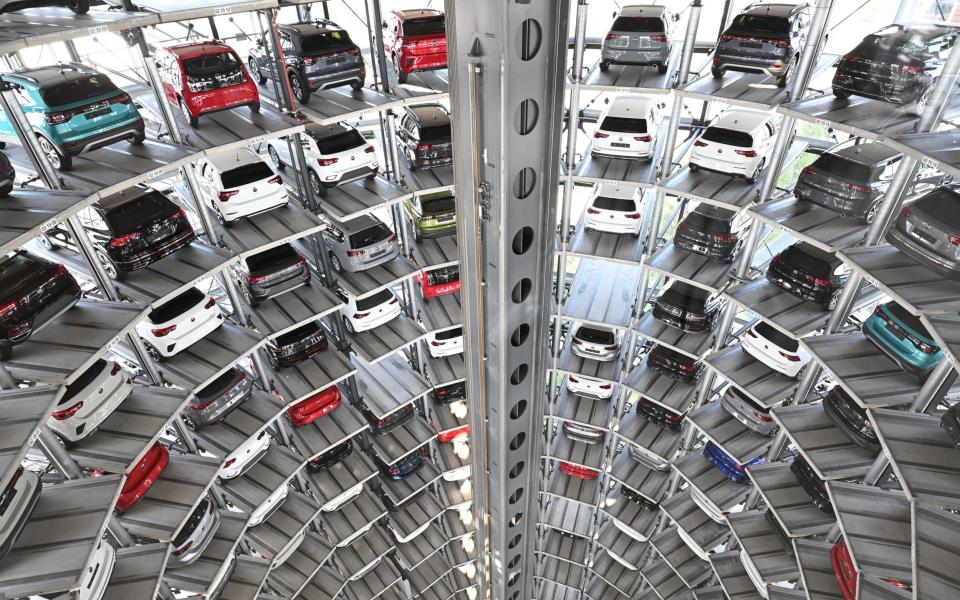Germany’s Volkswagen to cut thousands of jobs

Germany’s Volkswagen has braced its workers for a wave of job cuts as it battles the same high costs and low productivity that are dogging the country’s economy.
The carmaker is understood to be drawing up plans for thousands of job cuts as part of a programme to slash outgoings by €10bn (£9bn) over three years, although no firm target has been set.
VW is battling lower demand for its electric vehicles (EVs), which have a higher upfront cost than combustion alternatives.
Managers told VW staff of the plans for job reductions on Monday.
VW may reduce some of its workforce through early retirements since it has a relatively large number of older employees due to retire.
Candidates for cuts could include its design function after it outsourced the design of the Scout SUV to Magna Steyr, a supplier, said Daniel Roeska, an analyst at Bernstein.
In the longer term, cuts could come on the production line since making an EV means assembling fewer parts, although VW may elect to follow Mercedes’ lead and bring more supplier production inhouse to avoid redundancies, he said.
“Our initial expectation has always been that cuts would be more weighted towards non-German jobs. But that really, probably won’t address the cost problem too much,” he said.
It comes as Germany’s economy shrank in the three months to the end of September.
The 0.1pc drop in output reported by the country’s statistics office came following high energy prices, a high cost of borrowing and weak consumer demand.
Factory output for Germany, Europe’s manufacturing powerhouse, fell to a three-year low in September, dragged down by weak car production.
Output fell 1.5pc compared to August, the lowest production since 2020, with carmakers and their suppliers’ production figures dropping 5pc.
Germany’s carmakers are suffering from slower demand, particularly for electric vehicles, as buyers’ incomes are squeezed by higher bills driven by soaring energy prices, and also by the higher interest rates central banks have unleashed in order to tackle that inflation.
Last month, German luxury carmaker Porsche said soaring borrowing costs and rising prices were even starting to bite its wealthy buyers.
Sales are starting to slip in China, which has in recent years grown as an important market for luxury carmakers. Porsche, part-owned by Volkswagen, suffered a 12pc revenue drop in the country in the first nine months of the year.
Mercedes had made a similar warning, saying electric carmakers face a “brutal” market as competitors slash their prices and its wealthy customers tighten their belts.
It said its profit margins narrowed as it had to cut prices while its own costs including wages and raw materials stayed high.
A Volkswagen spokesman said: “The Volkswagen brand has launched an ambitious performance program, and the employee representatives are involved in its development.
“As a result, all costs and areas will be critically analysed. As proven during the transformation, the company will continue to use the potential of personnel development along the demographic curve. There is no total target for reducing the number of employees at Volkswagen.”
